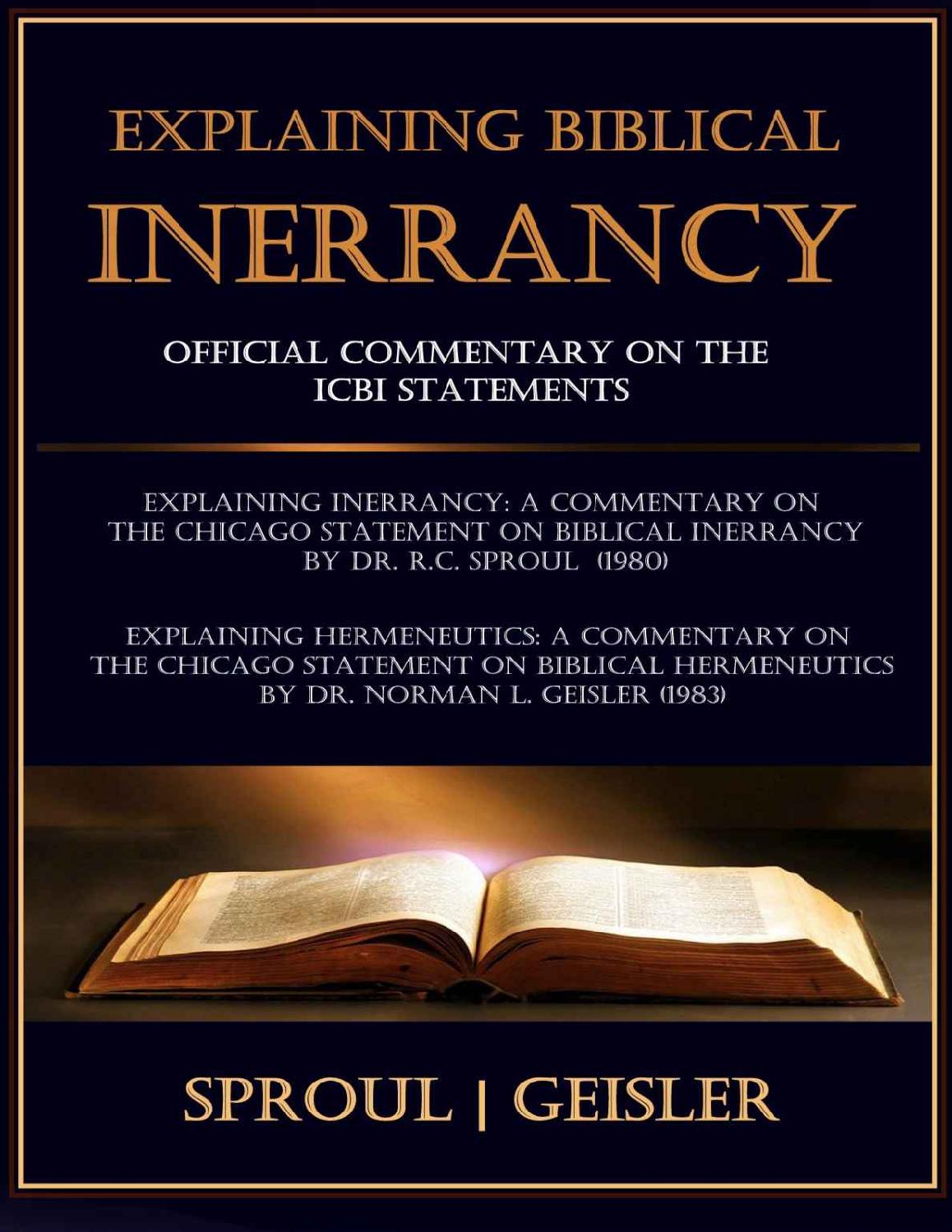
Explaining Biblical Inerrancy: Commentary on the ICBI: Official Commentary on the ICBI Statements 2013 PDF
2014·0.3506 MB·other
Most books are stored in the elastic cloud where traffic is expensive. For this reason, we have a limit on daily download.
Preview Explaining Biblical Inerrancy: Commentary on the ICBI: Official Commentary on the ICBI Statements 2013
Description:
From its inception in the 1730s, the evangelical movement was
underpinned by the conviction that the Bible was the inspired,
infallible, and inerrant word of God. The evangelical seminaries and
societies that sprang up in the 1930-1940s as a response to the
Fundamentalist-Modernist controversy and to the abandonment of orthodoxy
in the mainline Protestant divinity schools started off as bastions of
that same conviction. But it became clear in the 1970s that more
humanistic notions were beginning to become endemic there too.
Seminarians were learning that the Bible was ultimately more human than
divine, contained errors of fact and logic, and needed to be interpreted
in new ways. Seeing how these innovations would undermine and erode the
foundations of their Bible-based faith, more than 300 scholars and
leaders arose to meet the challenge with a scholarly, conservative, and
pan-denominational response. This International Council on Biblical
Inerrancy (ICBI) worked to clarify the proper ways “handle the word of
truth” (2 Tim. 2:15) and to educate evangelicals about its importance.
As a result, the revolutionaries retreated for the remainder of the
20th-century. Explaining Biblical Inerrancy is a collection of
the three primary and two secondary documents of the ICBI corpus. It
offers a witness to a historic era where conservative evangelical
scholarship may have approached its zenith, delayed its twilight, and
contributed to the fourth Great Awakening. This repository of 20th
century wisdom should provide a valuable and timeless resource for 21st
century evangelicals who stand at the cross-roads of conservation and
contextualization, tradition and trends, preservation and progress,
retention and revolution.
See more
The list of books you might like
Most books are stored in the elastic cloud where traffic is expensive. For this reason, we have a limit on daily download.
